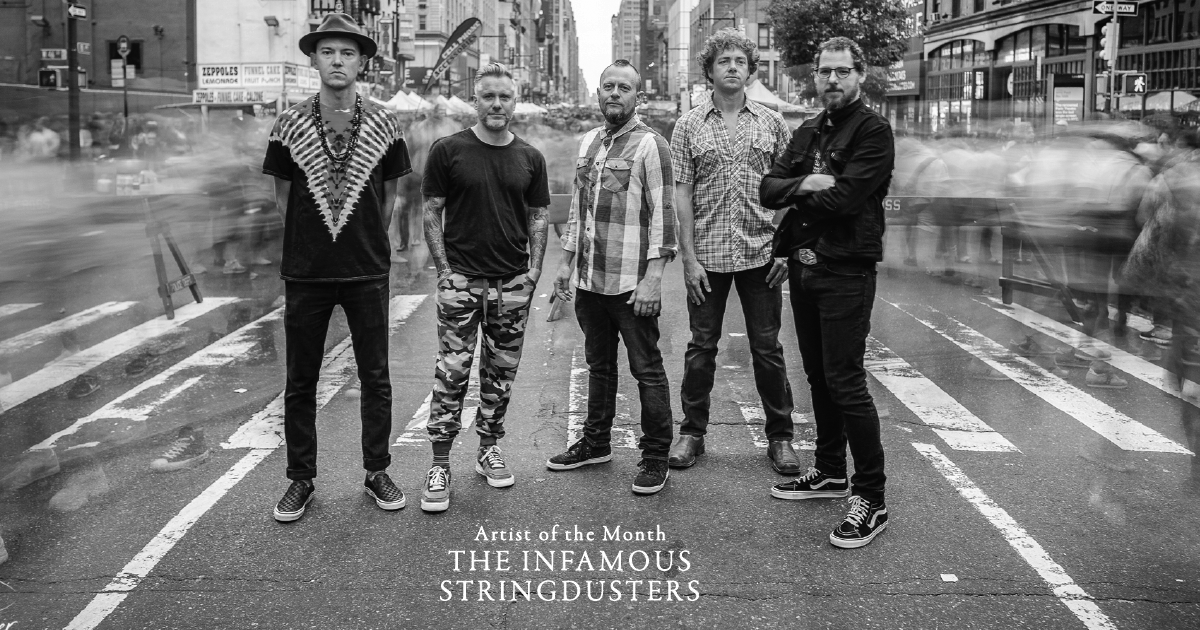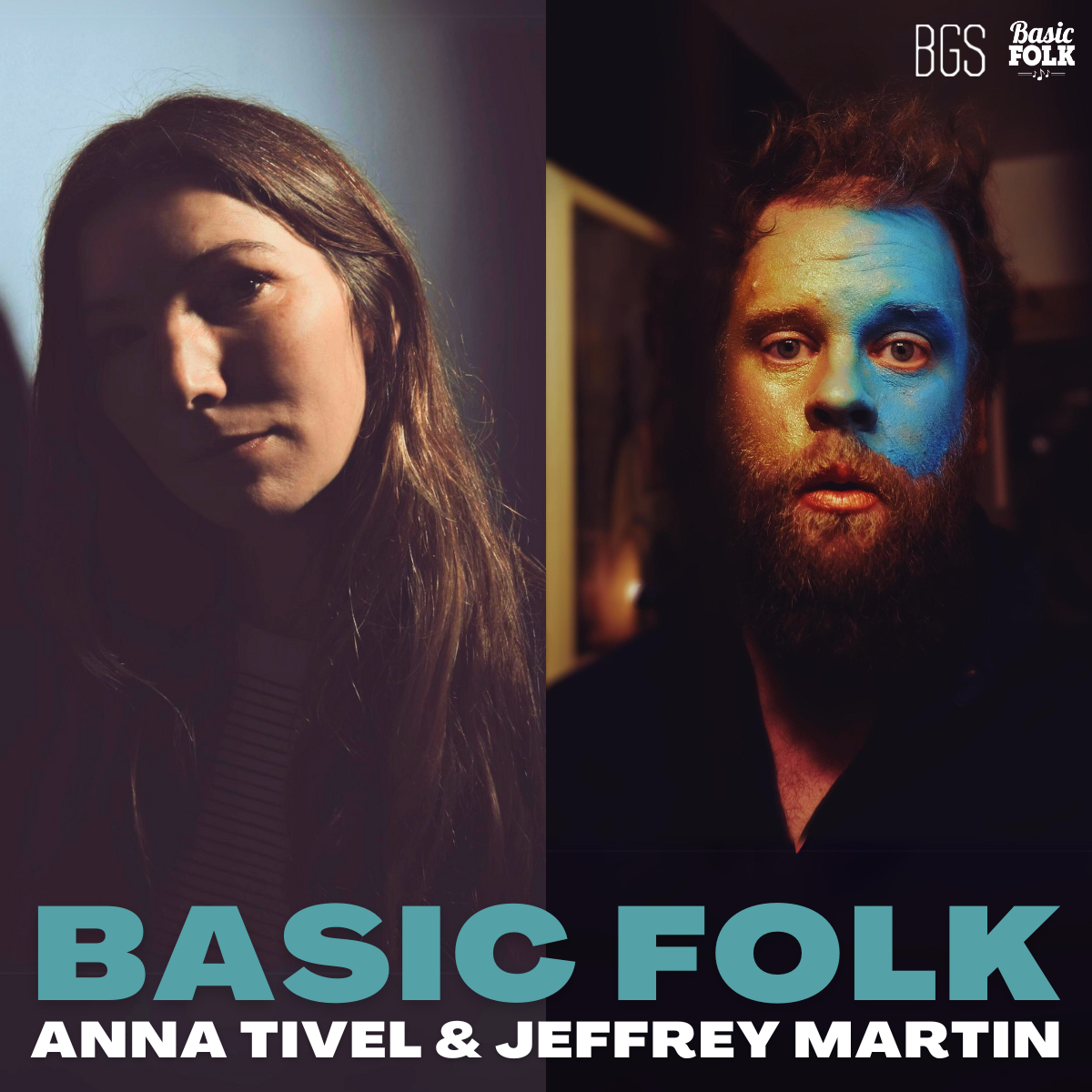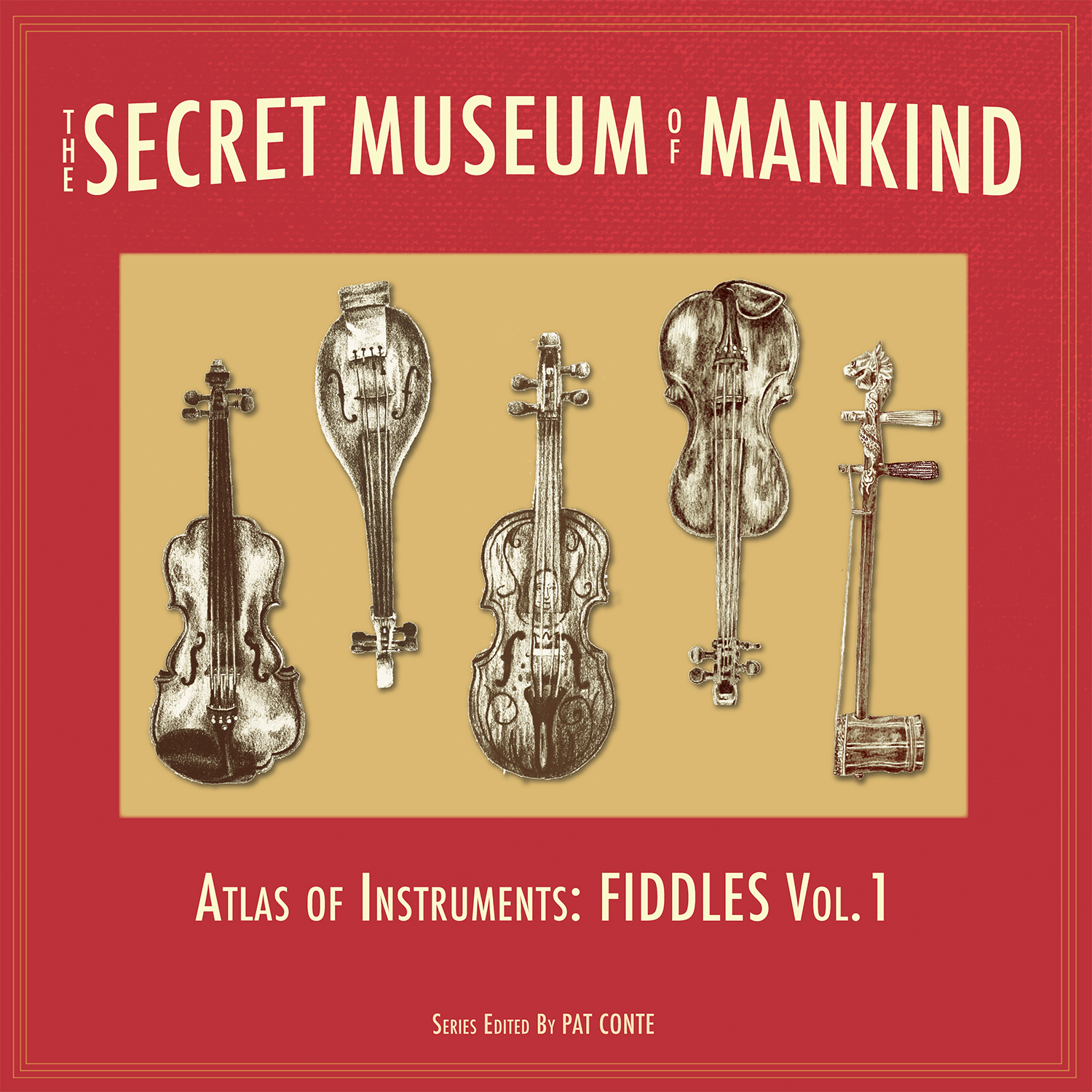Now in their 17th year, the Infamous Stringdusters have established themselves as one of the most prominent and prolific bands in modern bluegrass. Asked if he ever thought the Stringdusters would be together that long, bassist Travis Book candidly replies, “Yes. That was the plan when we started the band, not to be side guys working for someone else or to go it alone. If we needed to, any of us could be a bandleader at this point. When we started, our plan was to do this for as long as we could. Looking at each other, we all wanted this group to keep making music together for 30 or 40 years. I hope that’s not conceited or hubris to say.”
Fiddle player Jeremy Garrett adds, “I’ve been in side bands and seen the writing on the wall as to how far you can go that way, as opposed to taking the risk of taking the leap yourself. Many struggle and have difficulty with that. Every time I think about it, I’m glad we took the risk. It’s a big step to believe in yourself enough to do that, and I feel lucky that we realized that early on. We’ve all spent a long time in the trenches, building it up. Looking back, we have an awesome band and business, and we still love each other. We’re having the time of our lives out here.”
The band’s musical passion and mutual respect are evident on their new album, Toward the Fray, and indeed throughout their catalog. In April, they’ll head to Las Vegas where A Tribute to Bill Monroe is nominated for a Grammy Award in the Best Bluegrass Album category. (They won their first Grammy for their 2017 project, Laws of Gravity.) BGS caught up with the Stringdusters — our Artist of the Month for March — for a series of three conversations on the road. Here is part two with Book and Garrett, who each wrote multiple songs for Toward the Fray.
Editor’s Note: Read our BGS Artist of the Month interview with Andy Hall and Andy Falco.
BGS: So you’re up for another Grammy, and of course you’re going, right?
Travis Book: We are. When they rescheduled it to April in Las Vegas, that just so happened to be the weekend we’ll be at Wondergrass. We have Sunday off and it’s within driving distance, so we’ll bus down there. We went the first two times, too. Even though it’s a massive undertaking and not cheap, you’ve got to go. We make it a priority. It can be hard for people who aren’t intimately involved with the music industry to understand what we’re doing. You know, aunts or uncles thinking “our nephew and his little bluegrass band.” Winning a Grammy definitely helped them have a better perspective on us having some success. It especially made my dad happy. He’s a hardcore music fan, subscribes to the magazines. He’s the one who turned me onto Pearl Jam and Radiohead. He was happier about it than anybody.
Were you into alternative rock first, before bluegrass?
Book: That and classic rock — Led Zeppelin, Jethro Tull, Pink Floyd. That was the music that really got me, although I remember wearing out Red Hot Chili Peppers’ Blood Sugar Sex Magik in middle school. Getting from there to bluegrass wasn’t that complicated. I was into Grateful Dead and Phish when I ran into some guys in a garage jam band that needed a bass player. When that ended, the guitar player asked if I’d ever played bluegrass. He was from Georgia, turned me on to Yonder Mountain String Band, Old and In the Way. We started jamming on bluegrass and the harmony singing is what really got me into it.
I grew up singing hymns with my parents, and those three-part harmonies really resonated as fundamental. Singing is my jam, it’s why I got into music in the first place, and singing harmonies is what drew me in. It was not long until bluegrass was all I wanted to do, go to bluegrass and folk festivals. I’d go to the college library and print off pages and pages of traditional bluegrass lyrics. Bluegrass Album Band, I learned all that stuff. I thought it was so cool that you could go anywhere with acoustic instruments, no electricity required, and have this massive shared lexicon you could play with people.
On the new album, your song “Pearl of Carolina” is particularly good.
Book: I co-wrote that with Jon Weisberger, my neighbor in Brevard, North Carolina. The hook to that song came from me writing a script for my show, Travis Book Happy Hour, which livestreams from the Grey Eagle in Asheville. I’d say it’s Late Night meets eTown. I was trying to write an introduction: “Live from Asheville, it’s BLANK of Carolina.” I was wondering what should go there, “pearl” came to mind and then I thought, “That should be a song.” The melody and chord change came to me while I was riding my bike, and I sang that into my phone. It felt a little “country” to me and I did not have the guts to finish it. That descending chord change seemed a little down the middle. The main thing Jon helped with was making sure I didn’t dilute it and miss the opportunity to write it right. He really kept me on track. It’s a song that feels like it wrote itself.
Jeremy, you have side-hustle projects, too — a new solo record, right?
Jeremy Garrett: Yep, River Wild. Music abounds. It’s a really good time right now, music flowing out of everyone. I’m stoked to be coming out of the pandemic with great new songs and tunes to play. There’s the Stringdusters album, and my record is out March 25. We can’t stop creating, writing about things in our world. As a musician and aspiring poet, I want to put things into words and share them.
Since you’re writing material for both the group and your own thing, how do you know where a song should go?
Garrett: There’s definitely a Stringdusters flavor, to where I can usually tell if something will be a Stringdusters song right away. Not always, I do get surprised sometimes. When we do the show-and-tell song-sharing, I’ll keep one wildcard song I throw out to see what everyone thinks and sometimes that’s the one that catches their ears. A lot of times I know the spice level needed to bring to the Stringdusters pot — a certain energy that will go over good live. That’s our MO, bringing the live show in the hottest way we can.
Travis, you mentioned that “Pearl of Carolina” initially felt too country. Another of your songs here, “I’m Not Alone,” seems like it could also pass for country.
Book: I try to stay out of my own way with that stuff. I remember Paul McCartney saying about early Beatles songs, “We didn’t write them to be memorable, we wrote them that way because we had to remember ’em ourselves.” There’s something to be said for songs that stick with you and are memorable. I can come up with crazy ideas, but the stuff that keeps running around in my head days later, that’s when I know I’m onto something. The older I get, the less afraid I am about writing stuff that’s straightforward. You want to make music that’s quality and creative, complex, interesting. But it’s better if it resonates and sticks, becomes a part of lives and minds.
All three songs I wrote for this album are in that vein. “Pearl of Carolina” is a little more complicated, but “I’m Not Alone” is just that one-line chorus. The first three lines are the same melody, the third line I reharmonize; change the chord structure, then the last line the lead drops down to something very similar to the baritone part from the first two lines. It’s such a simple idea, but it still knocks me on my ass when I listen. It makes the chorus pop right out. The old me might have thought it was too sappy or not complicated enough. I feel fortunate to have grown up enough to get past that. It seems so simple, but essential, like a mantra.
View this post on Instagram
Beyond who plays what instrument, how would you summarize each person’s role in the Stringdusters?
Garrett: I think we are that rare democracy among bands. Everyone has their individual talents, things they’re better suited for. But I think we’re all into the big picture. That’s something we often discuss all together, vibing on the same wavelength about the band’s trajectory, how to create records and unify messages with five different guys. There are issues where we disagree, but we almost never have to vote on it. We just talk it out and eventually come around to being of the same mind about it almost all the time. We’re lucky that way. Panda (banjo player Chris Pandolfi) is very technically minded, handles a lot of the business, and Travis is a great booking agent, keeps an eye on the schedule because he knows how to make that flow. We hope to all bring something to the table. It’s always been that way.
Book: Everyone can kind of choose their level of engagement. We’re all allowed to integrate and contribute however we want. Business, music, interpersonal stuff all continues to move along and different people are engaged with different parts at different levels. But every year, we grow more alike. Every tour, we’re more on the same page. Ten years ago, there were a lot more differences of opinion than there are now. To me, the decision-making on goal-setting, recording, the way to approach shows and everybody’s role musically is all so much easier now than a decade ago.
Garrett: Even a decade ago, it was already better than most bands. We’ve always been lucky for sure.
Book: A major priority is keeping everyone involved and equal and on the same page to make sure everyone gets what they need out of this. Everyone has an equal say and there’s no bandleader. That can make it challenging to be a fan. So much is going on and everybody gets a chance to lead. If you just want to be fed the same singer doing the same type of songs all night, we’re maybe not the band for you. It’s highly dynamic. Any given song or even moment, a different guy can be the leader. That’s part of what keeps us interesting as a band — everybody getting a chance to take the reins, get support and then on to the next thing. We’re Jeremy’s backing band during his solo, then mine when I’m singing the hook. Moment to moment, everyone is fully supported.
Want to win tickets to see the Infamous Stringdusters at the Echoplex in Los Angeles? Enter our ticket giveaway.
Photo Credit: Jay Strausser Visuals






